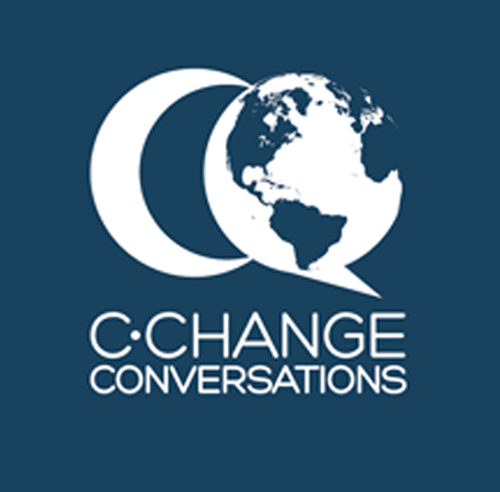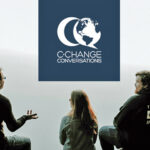Reframing the Climate Conversation
for Consensus and Action
![]()
November 4, 2025
When Kathleen Biggins founded C-Change Conversations in 2014, she was not aiming to build a traditional environmental nonprofit. Instead, she set out to bridge one of the deepest divides in American public discourse: climate change. What began as a group of volunteers worried about the lack of informed dialogue has evolved into a respected organization that has reached more than 23,000 people across 33 states and beyond, equipping communities with a science-based but accessible framework for understanding climate risk.
A Taboo Topic Made Tangible
In the early days, Biggins and her colleagues confronted a cultural barrier as much as a scientific one. “It wasn’t welcome discussion at dinner parties or even at lunches,” she recalls. “It was really something that was a little bit taboo to bring up.” Yet the risks were too significant to ignore. From rising insurance costs to food price volatility, climate impacts were already shaping households and markets.
The organization’s flagship program, the C-Change Primer, was designed to break through this silence. Structured like a risk assessment, the presentation asks audiences to consider three questions:
- How likely is the risk?
- What are the consequences if it happens?
- How difficult or costly is it to avoid?
By applying this framework, familiar to business leaders, investors, and policymakers alike, C-Change reframes climate change as a practical challenge that demands rational analysis rather than ideological positioning.
Meeting People Where They Are
Biggins emphasizes that different audiences connect with different aspects of the issue. For investors, the conversation often centers on stranded assets, shifting competitiveness, and insurance exposure. For civic groups, the focus may be on family health, household budgets, or community safety. “For some audiences, it’s their family’s safety and household pocketbook issues. For others, it is the big economy and competitiveness,” Biggins explains.
The method is deliberately apolitical. Instead of moralizing or prescribing specific policy solutions, C-Change provides credible data, local projections, and economic analysis, then leaves space for dialogue. This neutral ground has proven especially powerful in conservative communities, where skepticism can be high but concern for children’s futures, jobs, and national security resonates across party lines.
From Division to Dialogue
Perhaps the most striking element of C-Change’s approach is its commitment to respectful engagement. Biggins recalls one event in rural Virginia where a local resident approached her before she spoke, declaring that climate change was a hoax. Rather than dismissing him, she offered ten minutes for him to present his view. “My inclination was to treat him with respect and kindness and then do my thing,” she says. The result: the audience heard both perspectives, but also received a fact-checked, science-based framework that invited them to reflect rather than react defensively.
This approach reflects Biggins’ broader philosophy: the goal is not to win arguments, but to open doors. By focusing on risk, stewardship, and tangible local impacts, C-Change seeks to build the social will that can ultimately unlock political will.
Agency Over Apathy
One of the greatest challenges in climate communication is overcoming paralysis. People may accept the science but feel powerless to make a difference. To counter this, C-Change highlights local and personal actions, ranging from supporting community initiatives like urban tree canopies or electric school buses, to modeling change through personal choices such as installing solar panels or driving electric cars.
“Personal action is contagious,” Biggins notes. “If you put solar panels up, your neighbor is more likely to put solar panels up. If you drive an electric car and say, ‘this is the best thing since sliced bread,’ you can begin to move those around you.”
A Shifting Landscape
Over the past decade, Biggins has seen the climate conversation evolve, but not in a straight line. From outright denial, to reluctant acceptance, to concerns about cost, the narrative has shifted in fits and starts, influenced by politics, media framing, and economic realities. What remains constant is the need for organizations like C-Change to depoliticize the issue and ground it in shared values and credible evidence.
Globally, momentum remains strong. Europe and China are accelerating investments in clean energy but in the U.S., cultural and political headwinds persist. Biggins remains pragmatic but hopeful: “Nobody wants to sacrifice their children’s future. If you can help people understand their responsibility not as partisans, but as human beings who care for the next generation, you create a way forward.”
Building the Next Phase of Dialogue
As climate impacts become more visible, the demand for clear, credible, and nonpartisan communication will only grow. C-Change Conversations offers a model for how grassroots, volunteer-driven initiatives can influence national discourse: not by shouting louder, but by listening more carefully, framing more thoughtfully, and equipping communities to see climate change as the defining risk management challenge of our time.
In an era of polarization, Biggins and her colleagues have built something rare: a framework for consensus. Their work demonstrates that with the right tools, the climate conversation can move beyond denial and despair toward dialogue and determination.
>> Listen to the full interview on Spotify or your favorite podcasting platform.


